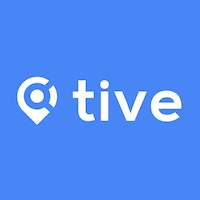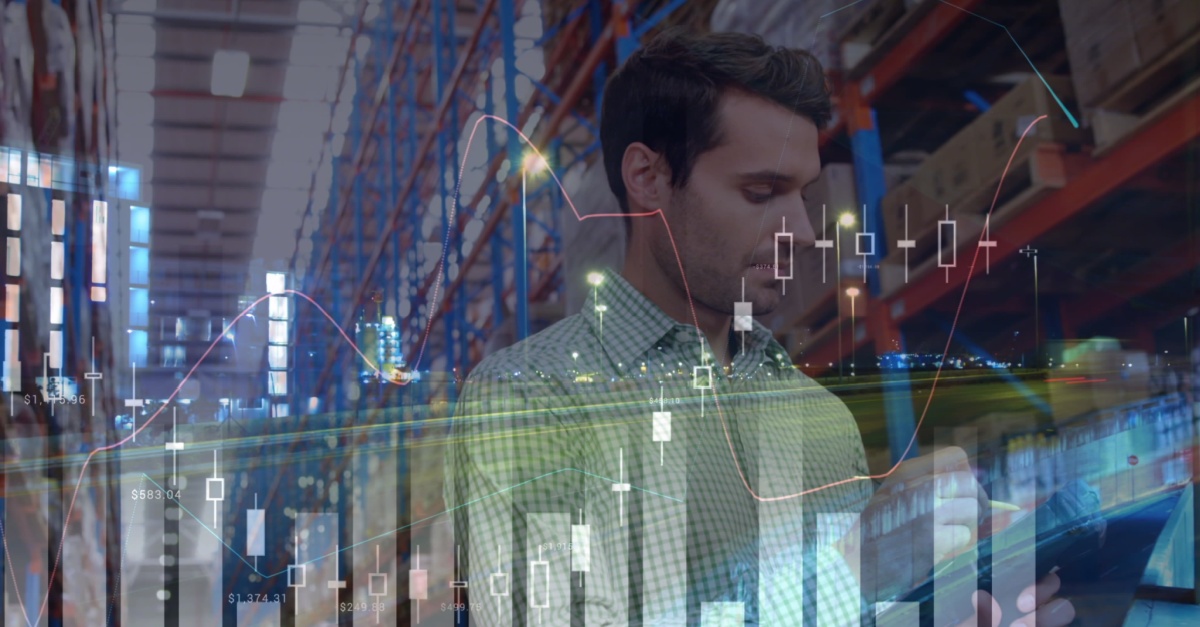Week in Review: Tive Trackers, Tariffs & Train Robberies

April 17, 2025
April 17, 2025
x min read
This week, we at Tive celebrate the launch of our Solo Pro tracker, featuring the industry’s largest display and providing pharmaceutical teams with real-time shipment visibility into their most time-sensitive products. Congress is also looking for ways to fight against modern-day train robbers as Microsoft and SkyCell launch K.AI to rescue $35 billion in medications lost annually in supply chain black holes. Food giants like McCormick feel the pressure too, with executives adapting to tariff updates in what seems like every hour—all as those same trade barriers increase pros, cons, and uncertainty with climate initiatives and clean energy. Every story this week could impact your bottom line—for better or worse—and we’ll dig into the details.
Meet Solo Pro: Brand-New Tracker Makes Pharmaceutical Shipments Smarter
We rolled out our Solo Pro tracker this week and couldn’t be prouder. Solo Pro meets pharma pros exactly where they are and directly hits on their pain points—showing them exactly where shipments are and how they’re doing in real time. No more operating on gut feelings, no more delays in approvals, and no more cold chain management nightmares.
Large Display: See Everything You Need to Know—Right Away
We designed Solo Pro with the largest screen in the industry—a 2.66-inch diagonal high-contrast display that works across all temperature ranges—to allow quality teams to verify shipment integrity with just a glance, and free of guesswork or delays. When your biologics and pharmaceutical shipments arrive, you’ll immediately see if there were any excursions—temperature, humidity, shock, tilt, and more—or if everything remained perfectly within range. We’ve made those stressful acceptance decisions straightforward and confident.
One Device to Handle Every Temperature Challenge
Solo Pro is packed with sensors that track everything—temperature, humidity, light, shock, motion, and tilt—all while delivering pinpoint location accuracy through GPS, cellular triangulation, and WiFi geolocation. Unlike traditional data loggers that only tell you what went wrong after delivery, Solo Pro sends alerts to the platform the moment conditions start to drift—so you have time to intervene. It’s also fully compliant with FDA 21 CFR Part 11, EU Annex 11, SOC 2 Type 2, and ISO/IEC 27001 security standards, and is flight friendly with a non-lithium battery. The cherry on top? You can adjust settings mid-shipment, and either reuse or recycle trackers through our Tive Green Program. Earth Day is coming up, after all.
Rail Robbery Revival: Congress Takes Aim at Train Heist Epidemic
Railroads are burning up with crime. Cargo theft jumped 40% in 2024, with thieves making off with over $100 million in goods last year. We’re talking about 65,000 separate heists targeting Class I railroads: not random smash-and-grabs, but carefully planned operations run by crime rings. That’s why lawmakers from both parties are now pushing back.
Crime Rings Meet Their Match
The Combating Organized Retail Crime Act brings something new to the fight: a central command post where everyone from local police to federal agents and railroad security can work together. Sen. Chuck Grassley’s bill has backing from nine Republicans and five Democrats because train theft hurts everyone—especially as “organized criminal operations continue to evolve and escalate,” Ian Jefferies, CEO of the Association of American Railroads, warns. These aren’t petty thieves either—: they stop trains, cut air brake hoses, and create serious dangers just to steal boxes of Nike shoes from containers.
From Stolen Sneakers to Human Trafficking
The worst part of this story is how money from train robberies often funds the criminal underworld—think human trafficking, gun running, drug deals, and terrorist activities. However, with this new legislation, cops would have more muscle to track these networks and connect the dots between stolen Air Force Ones and the larger criminal operations they fund. What once might have been a lone thief grabbing an opportunity has morphed into sophisticated criminal enterprises with profits reaching nine figures—and tentacles reaching much darker corners.
AI Meets Medicine: SkyCell & Microsoft Join Forces
Microsoft and SkyCell just announced a partnership that tackles a genuine pharma problem that most people never think about—billions in missing medications. Drawing on 13 years of pharmaceutical cold chain experience, SkyCell is bringing its SkyMind platform into Microsoft Teams and Copilot to address the $35 billion worth of products lost annually.
Real-Time Intelligence—Without the Email Avalanche
The partnership introduces K.AI, SkyCell’s Azure-powered assistant that monitors 5 million yearly shipments with laser focus. Built to eliminate those painful email threads in which critical information gets buried, K.AI spots potential medication disasters before they happen—and connects directly with the people who can fix them. When temperature-sensitive treatments worth millions sit in jeopardy, the system alerts teams through platforms they’re already using—and turns potential losses into quick wins for both companies and patients waiting for treatment. Perfect timing, considering pharmaceutical shipping is more complex than ever with personalized medicines and tighter delivery requirements.
Making Better Decisions in the Trenches
The best part of this partnership? Practicality. SkyCell integrates directly with existing workflows—meaning no new systems to learn. What once took days now happens in minutes, turning shipping data into product-saving actions without disrupting how teams already work. After all, when medications sit in shipping containers, time is the enemy. Patients wait for these treatments—sometimes with no backup options if their medicine spoils. Stay tuned.
Food Giants Play Tariff Dodgeball: Adapt or Get Hit
“Every day, even in the last hour, we have some new news on tariffs,” says Amy Haigler, McCormick’s VP of supply chain operations in the Americas. Welcome to the new reality for U.S. food giants caught in the crossfire of Trump’s on-again and off-again tariffs and trade war threats.
Plan B, C & D: How McCormick & Del Monte Stay Ahead
McCormick has 28 factories worldwide (three in China alone) and works with suppliers of more than 20,000 ingredients. Running such a massive network isn’t easy, but it lets them pivot when tariffs hit. “We can make changes based on availability and sourcing decisions and consistently tweak our products,” Haigler explains. Meanwhile, Del Monte Foods’ chief supply chain officer, Daniela Vonghia, runs constant “what if” drills to avoid supply disasters. That said, you can try and throw all the tech you want at the uncertainty, but it’s only as effective as your data quality.
Why Quick Fixes Might Backfire
While some food companies rush to build new American factories, experts suggest taking a breath first. “We really want to make sure that as this is happening, [clients are] looking for other areas to potentially offset costs,” says Jeremy Tancredi, partner of operations excellence and supply chain management at West Monroe. The math gets ugly fast—warehousing costs have already shot up 12% to $9.30 per square foot compared to last year for third-party logistics providers. Pile Trump’s potential tariffs on top of these storage costs, and supply chain expansion becomes a tough pill to swallow. That’s why the best approach is targeted tweaks now, stockpiling cash for later.
Tariffs vs. Climate: A Silver Lining with Dark Clouds
While food manufacturers look for ways to adapt, another consequence lurks behind Trump’s tariff bomb: potential climate impacts. Reduced global trade might briefly cut emissions, but experts warn the green energy transition will bear the brunt of soaring renewable tech costs.
Short-Term Emissions Dip? Don’t Cheer.
“I would say it might help the climate in the first year or two if we have a downturn in economic activity,” explains Rob Jackson, head of the Global Carbon Project. His team expects at most a 1% drop in emissions if full tariffs hit—which is notable, but far less than the 5.7% reduction during the pandemic’s first year. We’ve seen this movie before: carbon dioxide emissions dropped during COVID-19 and the 2009 financial crisis, only to rebound within months. Dan Jasper from Project Drawdown puts it bluntly: “Any emissions reduction would be temporary. I’m deeply skeptical that this would have positive impacts on climate change and in particular the energy transition.”
Green Tech Takes a Beating When Trade Wars Heat
The impact of Trump’s China tariffs could devastate clean energy progress: China produces over 80% of the world’s solar panels and grid-scale batteries, and Baringa’s David Shepheard predicts a 55% price jump for these essential batteries if tariffs hit full force. Even Chris Moakley, who just secured an impressive $1 billion for clean energy projects, sees trouble brewing because the math is brutally simple—as renewable prices climb, fossil fuels regain their edge. Columbia University’s Michael Gerrard adds another layer to this climate contradiction: fewer electric vehicle imports mean more emissions, not fewer. We’re facing a painful climate policy paradox with real-world consequences.
Real-Time Tracking: Your Shield Against Supply Chain Chaos
From train heists to tariff chaos, the threats to your shipments are multiplying. But while others react to problems after they happen, you don’t have to. The Solo Pro only scratches the surface of what our real-time tracking technology is capable of.
Arm yourself with innovation: let Tive lead the way in transforming your supply chain operations. Embrace the future of logistics—get started with Tive today.


